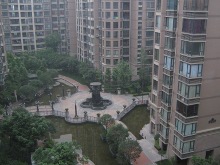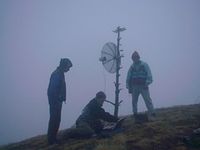
The Sega game machine is an example of the former principle. Had Sega been able to donate the code when they killed the product, it could have had an after-life. As it was, owners now have bricks.
WiFi is an example of the latter principle. The Electronic Frontier Foundation now says it wants the WiFi protocol “opened,” allowing free sharing of unused bandwidth.
Peter Eckersley calls fears of privacy and security that have made people lock their WiFi routers a “tragedy of the commons” and suggests the launch of an Open Wireless Movement to fight back.
I wrote something very similar two years ago, from Chengdu, where I was able to post stories only because of open wireless connections in a Chinese condo project. My hosts let us use a great apartment, but it had no computer, no Internet. Without the open connections of nearby units, which admittedly were on intermittently and didn't provide a ton of bandwidth, I would have been gone from the Web all that week. As it was, I delivered some of the most popular things I ever did write at ZDNet.

The only way wireless giants AT&T and Verizon can prosper, they think, is to kill this competition, and by playing on our fears of a privacy breach, and the mistaken idea that unused bandwidth has value, that there must be an imputed cost to moving bits, they have succeeded in doing so.
Eckersley suggests that part of everyone's bandwidth be made unencrypted and free, while part of it remains encrypted. In my piece, I suggested that router owners get first priority on all their bandwidth, but that they have a firewall between the PC and router, and separate power supplies, so when the bandwidth wasn't being used (or the PC was turned off) they could work for whoever was passing by. Routers should be encrypting all traffic as a matter of course.

Shared WiFi in cities could be enormously valuable. It would reduce the load on phone networks, so that iPhone and Android broadband really would work. It's perfectly reasonable.
It shouldn't be necessary to "create" municipal WiFi networks. They should be created adhoc, by people simply leaving their gear on and available when it's not in use.
The chances of this happening any time soon are perfectly zero.










